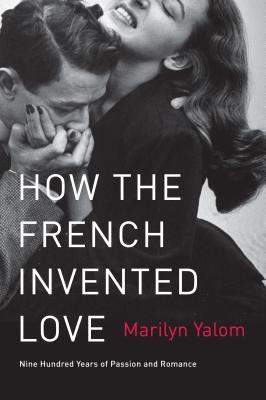
How the French Invented Love
Nine Hundred Years of Passion and Romance
کتاب های مرتبط
- اطلاعات
- نقد و بررسی
- دیدگاه کاربران
نقد و بررسی

Starred review from June 4, 2012
In this enchanting tour of French literature—from Abélard and Héloïse in the 12th century to Marguerite Duras in the 20th and Philippe Sollers in the 21st—Yalom attempts to unravel the mystery of how the French manage their romances, marriages, affairs, and obsession with love and sex. Former professor of French, current senior scholar at Stanford’s Clayman Institute for Gender Research, avowed feminist, confessed Proustian, admitted Simone de Beauvoir groupie, the erudite and charming Yalom is the perfect companion. Yalom (A History of the Wife) argues that it’s not only gender-specific traits and roles that are socially constructed, but love, too. For example, Les liaisons dangereuses (the most wickedly erotic book ever written, in Yalom’s opinion) is still on the list of required reading in French high schools. Her passion for French literature is palpable, and the analytical connections that she draws to the love lives of its writers (gay, straight, or just plain neurotic) are edifying and great fun to read. At the heart of this delicious book is Yalom the reader, whose fascination with the French way of love and pleasure in sharing her enthusiasms is highly contagious. Readers will want to run to the library and stay there for a year, reading everything she deconstructs. Illus. Agent: Sandra Dijkstra, Sandra Dijkstra Literary Agency.

September 15, 2012
Cultural historian Yalom (Birth of the Chess Queen, 2004, etc.) explicates Gallic attitudes toward the not-always-so-tender passion. Tracing l'amour a la francaise "from the emergence of romance in the twelfth century until our own era," the author employs an enjoyably downright style, blending in her own experiences in France over the course of 60 years as well as the personal stories of French friends. She begins with the troubadour poetry that established the idealized conventions of courtly love in medieval France, then moves on to the more cynical trope of gallant love, which emphasized physical passion. The distinction between a true emotional bond and mere lust runs through all of French literature, but they are not necessarily in conflict; Yalom notes the culture's forthright acceptance of sexual pleasure, so much more problematic for puritanical Anglo-Saxons. The famous union of Jean-Paul Sartre and Simone de Beauvoir, who maintained an "essential" love while enjoying "contingent" loves with others, is a 20th-century example of the pragmatic French acknowledgment that marriage and passion don't always go hand in hand. Yet Yalom finds many examples of French men and women (but mostly women) overwhelmed by all-consuming ardor, from Racine's Phedre to the "irresistible force that penetrates through the skin, regardless of its color," in Marguerite Duras' novel, The Lover. Yalom also covers homosexual love in the works of Proust, Gide and Colette, and she devotes a chapter to the "yearning for the mother" that fueled some decidedly sexual affairs between young men and older women in the novels of Stendhal, Balzac and others. Yalom's prose occasionally seems a bit breathless for an octogenarian author, but her first-person confidences give this an engagingly informal tone that matches the relatively light treatment of its subject.
COPYRIGHT(2012) Kirkus Reviews, ALL RIGHTS RESERVED.

October 1, 2012
Cultural historian Yalom traces the French view of love through the literature and history of the country via the lives of significant figures, both real and imagined, especially writers and their characters. Beginning with courtly love and the quintessential lovers, Abelard and Heloise, she demonstrates how the French concept of love developed and changed over the years while never losing the unique elements that make romance in France different from anywhere else in the world. Racine's character, Phaedre, the love letters of Julie de Lespinasse, the person and writings of George Sand, and, of course, Cyrano de Bergerac embody the nuances of romantic gallantry, passion during the revolution, love between men, existentialism and amorousness, and twentieth-century ardor. Don't doubt that this is a serious, scholarly work, even as Yalom lightens the tone by inserting asides that illuminate her own wry view of the world. This superbly realized and wonderfully engaging work of analytical cultural history creates a class by itself.(Reprinted with permission of Booklist, copyright 2012, American Library Association.)

























دیدگاه کاربران